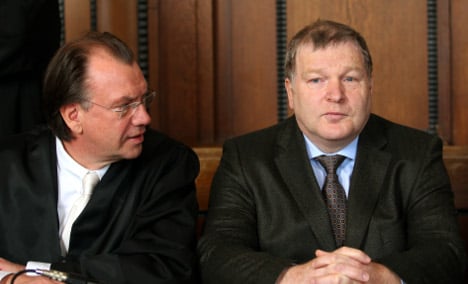In one of the more notorious medical scandals in recent years, the court pronounced the 54-year-old owner and head doctor of a private clinic guilty guilty on two counts of negligent homicide and 21 counts of bodily harm.
Arnold Pier, who confessed to his crimes after one-and-a-half years at trial, “removed organs that should not have been removed,” head Judge Lothar Beckers said.
He surgically removed appendixes, a gallbladder and a kidney without medical cause or permission from patients, the court said. In another case a woman died because he broke off treatment, while another was subjected to unnecessary chemotherapy.
Another incident involved a man who had accidentally sawed his thumbs off. Instead of immediately sending the patient to a specialist, Pier simply sewed his thumbs back on, an action an expert described for the court as “waiting on a wonder.”
The thumbs rotted and had to be amputated.
“How he imagined he could simply sew the thumbs back on is hard to grasp,” Beckers said.
A total of four patients did not survive his treatment, which the court said was akin to “flying blind.”
In 2006 Pier purchased the bankrupt Antonius Klinik in Wegberg for €25,000 with the intention of restructuring operations there. But Pier did not know his limits and overestimated his abilities, the court said, assuring victims and their families that chances he would ever practice medicine again were slim.
Without a confession the sentence would have been significantly longer, and Piers’ defender Egon Geis said he was satisfied with the verdict.
“We will not appeal,” he said.
The court had acknowledged a belief that Piers had not acted out of malice, but had made mistakes in an attempt to help patients while he was overwhelmed. The defendant said that increasing profits had not motivated his errors.
He had been acting as owner, chief doctor, medical director and surgeon at once.
Authorities were tipped off by an anonymous clinic employee, and indictment actually charged Piers with seven deaths and 60 acts of bodily harm.
DPA/ka



 Please whitelist us to continue reading.
Please whitelist us to continue reading.
Member comments